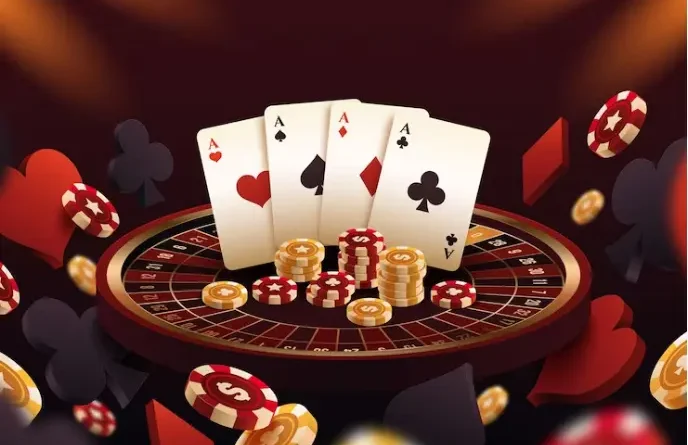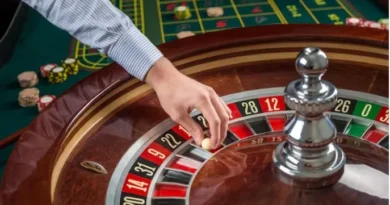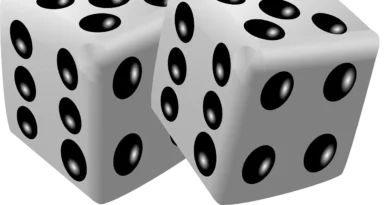Deciphering Gambling Odds: Unveiling the Mathematics Behind Casino Games
In the enthralling world of casinos, where fortunes are made and lost with every roll of the dice and spin of the wheel, understanding gambling odds is akin to wielding a compass in uncharted territory. The odds, expressed as probabilities, serve as a guide for players seeking to navigate the complex mathematical landscape that underpins casino games. In this exploration, we’ll delve into the concept of gambling odds, demystify their significance, and examine how they shape the outcomes of various casino games.
1. Understanding Probability in Gambling:
At the core of gambling odds lies the concept of probability. Probability is a mathematical measure of the likelihood of an event occurring. In the context of casino games, events can range from the outcome of a single dice roll or the spin of a roulette wheel to the drawing of a specific card from a deck.
2. Expressing Odds:
Odds are typically expressed in three main formats: fractional odds, decimal odds, and moneyline odds. Each format conveys the same information but presents it in a slightly different manner.
Fractional Odds: Expressed as a fraction (e.g., 1/4), these odds represent the ratio of the potential profit to the initial stake. For example, if you bet $4 on a 1/4 fractional odd, you could potentially win $1 in profit.
Decimal Odds: Represented as a decimal number (e.g., 1.25), these odds include the initial stake in the calculation. In this example, a $4 bet at 1.25 decimal odds would yield a total return of $5 ($4 initial stake + $1 profit).
Moneyline Odds: Commonly used in the United States, moneyline odds can be positive or negative. Positive moneyline odds (e.g., +200) indicate the potential profit on a $100 stake, while negative moneyline odds (e.g., -150) represent the amount you need to bet to win $100.
3. House Edge: The Casino’s Built-In Advantage:
While gambling odds provide insight into potential outcomes, they also play a crucial role in establishing the house edge. The house edge is the statistical advantage the casino holds over players and is inherent in every casino game. Understanding the relationship between odds and the house edge is pivotal for players seeking to make informed decisions.
For example, in European roulette, where there is a single zero, the house edge on a straight-up bet (picking a specific number) is approximately 2.7%. This means that, on average, the casino retains 2.7% of each bet over the long run. Similarly, in games like blackjack or baccarat, the rules and payout structures contribute to the establishment of the house edge.
4. Probability and Payouts:
The correlation between probability and payouts is a critical aspect of gambling odds. In casino games, the likelihood of a particular outcome directly influences the potential return on a bet. Games with lower probabilities of winning often offer higher payouts to compensate for the increased risk.
Consider a coin toss. The probability of it landing on heads or tails is 50%, and a fair payout for correctly predicting the outcome would be 1:1. In contrast, a specific number on a roulette wheel has a lower probability of winning, and the payout is higher—usually 35:1 for a straight-up bet.
5. Dice Games and Probability:
Dice games, such as craps, exemplify how probability shapes the betting landscape. In craps, players wager on the outcome of the roll of two dice. The probabilities of rolling specific numbers influence the odds and payouts associated with various bets.
For instance, the probability of rolling a seven is higher than rolling a two or twelve. Therefore, bets on sevens have lower payouts compared to bets on twos or twelves. Understanding the probabilities enables players to make informed choices, aligning their bets with the inherent likelihood of specific outcomes.
6. Slot Machines and Return to Player (RTP):
Slot machines, a staple of casino floors, operate on a different principle than many table games. The odds in slots are expressed through the Return to Player (RTP) percentage. RTP represents the portion of total bets that a slot machine is expected to return to players over time.
If a slot machine has an RTP of 96%, it means that, on average, players can anticipate receiving $96 for every $100 wagered. The remaining 4% contributes to the casino’s profit. While individual sessions may result in wins or losses, the RTP provides a long-term perspective on the odds associated with a specific slot game.
7. Poker Odds and Hand Probabilities:
Poker, a game of skill and strategy, intertwines probability with player decision-making. Understanding the odds of different hands and potential outcomes influences strategic choices during a poker game.
For example, the probability of being dealt a pair of aces in Texas Hold’em is relatively low. Armed with this knowledge, players can make calculated decisions on how to play their strong starting hand. Additionally, poker players often use odds to evaluate the potential profitability of drawing additional cards to complete a winning hand.
8. Sports Betting and Odds Formats:
In the realm of sports betting, odds play a pivotal role in determining potential returns on wagers. Different formats, such as fractional odds, decimal odds, and moneyline odds, are prevalent in sportsbooks worldwide.
Understanding how to interpret odds is essential for sports bettors. Positive moneyline odds indicate the potential profit on a $100 bet, while negative moneyline odds represent the amount needed to bet to win $100. The odds also reflect the perceived probability of a specific outcome. Teams or individuals with lower odds are considered favorites, while those with higher odds are seen as underdogs.
9. In-Play Betting and Changing Odds:
The advent of in-play or live betting has introduced dynamic shifts in odds during the course of a game or event. As the situation evolves, bookmakers adjust the odds to reflect changing circumstances. For example, if a soccer team scores a goal, the odds on that team winning may decrease, while the odds on the opposing team may increase.
In-play betting requires a combination of quick decision-making and an understanding of how events can impact the odds. Savvy bettors can capitalize on fluctuations in real-time to seize favorable opportunities.
10. Making Informed Choices:
While luck plays a role in casino games, understanding gambling odds empowers players to make informed choices. Whether at the blackjack table, roulette wheel, poker room, or sportsbook, a strategic approach, rooted in probability and odds analysis, can enhance the overall gaming experience.
In conclusion, gambling odds serve as the compass that guides players through the intricate terrain of casino games. By deciphering the mathematical probabilities inherent in each wager, players gain insight into the dynamics of chance and strategy. The journey through the casino realm becomes not just a test of luck, but a calculated exploration where knowledge and decision-making intertwine with the captivating allure of games of chance.




